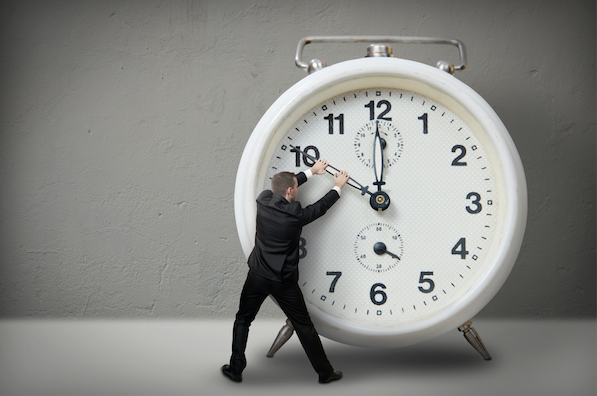The Pain of Time
Author: Dick Bolles

We occupy our time, say we,
with the passage of time,
while we keep time,
or mark time,
and try not to be behind the times;
still we find ourselves taking our time,
or wasting time,
or even killing time.
So it is no surprise that
time after time,
we run out of time,
and regret we didn't have more time.
We learn then, over time,
to try to make time,
by using time-saving devices,
or shortcuts that help us to make excellent time,
so that if things work out, we can end up being on time,
Or even ahead of time
Most of the time.
And when we have time on our hands,
we have a pastime
Wherein we try to have a good time,
even a grand time,
or perhaps the time of our life.But, as it has been
since time immemorial,
we find ourselves at various times
looking back, and mourning
the passage of time,
remembering when times were better;
and telling people
how it was in our time,
when we enjoyed life
times without number,
even though we did suffer for quite some time
when it seemed that truly the time was out of joint.
Strange things happened to us
at the right time
or the wrong time,
for a short time,
or a long time,
or for some time,
even considerable time.
We tell these stories time and again,
And you know we'll keep telling them
in the time to come –
so long as it is not yet our time.Yes, but that day will come
when our time is up,
and we are out of time.
Then to whatever realm our souls will go,
We will at last achieve our dream
To be beyond the bounds of time
Or, as we put it,
Timeless.
Yes, time is our addiction and obsession.
Almost every popular invention of the last twenty or thirty years has had time (saving) as its principal feature and benefit – be it fast food places, FedEx, Uber, fax machines, pagers, cell phones, e-mail, ATMs, etc. We want instant meals, instant communication, instant access to people or information, at any time of the day or night, and instant response.
Words like: patience, savor, relaxation and the like are only now beginning to be back in vogue. The passage of time remains for many of us a truly royal pain. We reach for wrinkle creams or hair pieces or even plastic surgery as we grow older, but on our mortal face is etched the pain of time.
How to heal the pain of time? We need some rules. Here are four.
1. Avoid 'hurry sickness.'
This is the disease that seizes us, when we are hurrying just for the sake of hurrying. Like trying to get one car length ahead of where you were on the highway, so you can arrive home five seconds earlier. Hurrying is not an end in itself; it is only a means to an end. Calm down. Build slowness into your day somewhere.
2. If there are two things you need to do within a set time, always do the the more important one first.
Half of the pain of time results from doing the trivial first, then finding one has run out of time to do the essential thing.
3. If your memory isn't great, and you think of two things to do immediately, always do first the one you're most likely to forget.
If it's 'put something in the car,' and 'put on your shoes,' the shoes can wait. Beyond the immediate moment, lists help. Many of us shrink from them because we think it's a sign of growing old. Listen, at any age we have "a cell phone memory." Sometimes it's within range, sometimes it's out of range.
4. Find time to think of what you appreciate.
Time always arouses one of four emotions: mourning, worry, hope, or appreciation. The last is key. Count your blessings, for as one wise person says, "If you're not grateful for what life has already given you, why do you think it will give you anything more?"
There is magic in hourly gratitude; it redeems and heals the pain of time.